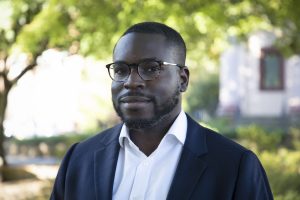Now in its 36th year, the program supports high-achieving scholars from underrepresented racial and ethnic groups in higher education.
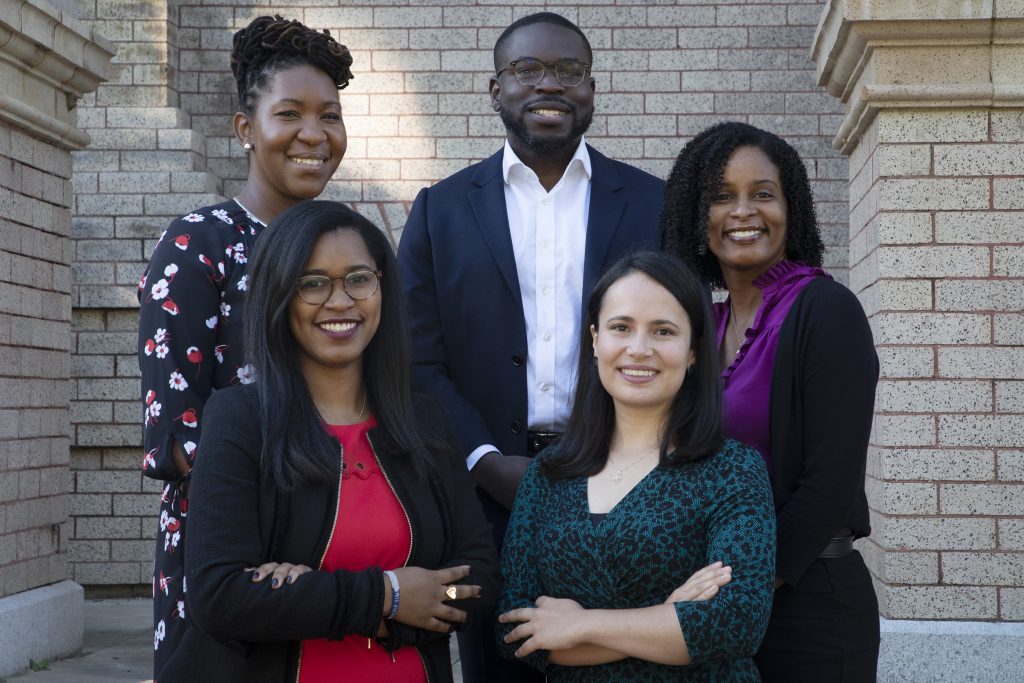
The University of North Carolina at Chapel Hill is pleased to announce the 2019-2021 Carolina Postdoctoral Program for Faculty Diversity Fellows.
The fellows each receive a paid, two-year postdoctoral position in his or her department, additional funds for research, professional development and networking opportunities, and a unique opportunity to work closely with a faculty mentor in their respective discipline.
Carolina launched the program in 1983 as part of a continuing commitment to enhancing a culturally diverse intellectual community and supporting scholars from underrepresented racial and ethnic groups in higher education.
This year’s fellows are:
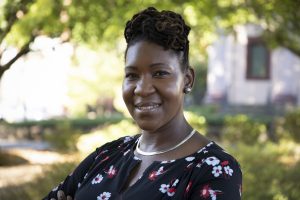 Teshanee Williams, School of Government
Teshanee Williams, School of Government
During her fellowship, Williams will continue her research on advancing effective, efficient, and equitable policy outcomes between public and nonprofit organizations. Williams’ research interests include the application of mixed method approaches for inquiries related to strategic alliances between the public sector and nonprofits, as well as public participation in decision-making processes. Her previous projects include the public management aspect of the policy process.
She received doctoral and master’s degrees in public administration from North Carolina State University.
Murray’s teaching and research interests include property law, administrative law, race and the law, and how the law reinforces or undermines various ideals of democracy. Before joining UNC, Murray served as a fellow at the NAACP Legal Defense & Educational Fund, Inc., where he focused on appellate work and judicial policy. As a litigation associate, he worked on complex civil litigation, including a major pro bono case challenging the city of Milwaukee’s stop and frisk practices. He also served as a law clerk on the United States Court of Appeals for the Tenth Circuit and the United States District Court for the District of Columbia.
Murray holds a law degree from Stanford Law School and a bachelor’s degree in philosophy from the University of Georgia.
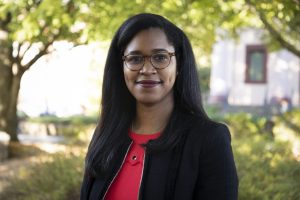 Deshira Wallace, Health Behavior, Gillings School of Global Public Health
Deshira Wallace, Health Behavior, Gillings School of Global Public Health
Wallace is a postdoctoral fellow in Gillings’ health behavior department and is also affiliated with the Carolina Population Center. Her research is focused on examining the effects of structural and psychosocial stressors on type 2 diabetes prevention and management in Latinos in the U.S. and Latin America. During the fellowship, she will continue her research with an emphasis on Latinos and Latin Americans of African descent in an aim to further unpack disparities within their populations.
Wallace earned doctoral and master’s degrees in health behavior from the UNC Gillings School of Global Public Health.
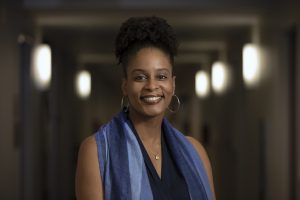 Karen M. Sheffield-Abdullah, School of Nursing
Karen M. Sheffield-Abdullah, School of Nursing
Sheffield-Abdullah’s research focuses on the utilization of holistic, integrative, multi-sector strategies to promote physical, mental, and emotional well-being for individuals and communities. She is particularly interested in developing approaches to reduce the long-term health effects of psychological trauma, anxiety, and depression on women’s health and birth outcomes. Her additional interests include the bio-psycho-social benefits of self-compassion, mindfulness, and other mind-body therapies as adjuncts to conventional interventions. Her research hopes to facilitate the development of culturally relevant interventions to reduce disparities in stress-related adverse outcomes during the perinatal period.
Sheffield-Abdullah holds a doctoral degree in nursing from the UNC School of Nursing and a master’s in nursing from Yale University.
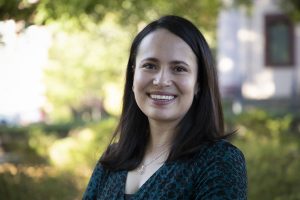 Ana María Silva Campo, History, College of Arts & Sciences
Ana María Silva Campo, History, College of Arts & Sciences
Silva Campo is an historian of race, gender, and the law in colonial Latin American cities. Her book manuscript, “Roots in Stone and Slavery,” studies the formation of religious, gendered, and increasingly racialized hierarchies in Cartagena de Indias, the main port for the trade in African captives in Spanish South America during the 17th century. Drawing on insights from urban ecology studies, her book examines how the political economy of the slave trade generated intense local competition over urban spaces, real estate, and property in terms of persons. As a public scholar, Silva Campo has curated online and museum exhibits about slavery and its legacies in Colombia and Argentina and written for leading Latin American newspapers, including Argentina’s Clarín.
She holds a doctoral degree in history from the University of Michigan and a bachelor’s degree from Universidad de Los Andes in Bogotá, Colombia.
For more information about CPPFD, please visit our website.

